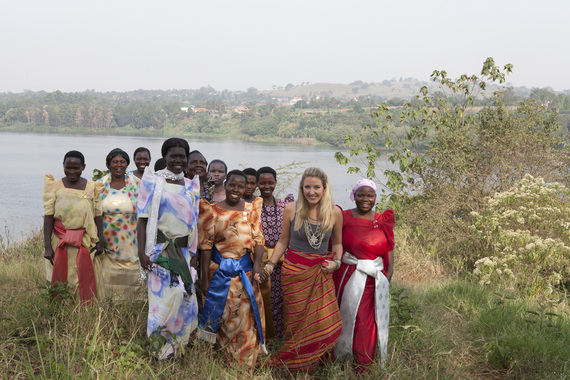Home
Focus Areas
About Us
"Having a purposeful job actually does transform someone's life," says Edwin Walsh, who runs a social enterprise in Australia called Assembled Threads.
"You actually are moving someone from vulnerable into purposeful job where they're getting paid, they're getting respected for their skills.
They're getting respected for their skills.
It's a fantastic game changer."
Social enterprises are for-profit businesses that tackle a social problem, such as under-employment or training newly-arrived migrants.
Large companies and governments buy a lot of products, and the sector is expected to turn over $5.5 billion by 2030, the Australian Broadcasting Corporation reports.
The work they do, and the people they employ, vary depending on the business.
So they might be working with people with disabilities, migrants and refugees, families, children, communities, youth, people escaping the justice system, those that need some extra support to empower themselves and create better futures, solidifying careers and careers, and people escaping the justice system, those that need some extra support to empower themselves and create better futures," says Tara Anderson, chief executive of Social Traders, a company that certifies social enterprises.
Australia has more than 12,000 certified social enterprises, with the number of certified businesses growing at 16% a year and the amount spent
Selected Grant News Headlines
A customized collection of grant news from foundations and the federal government from around the Web.
getRecommendations_1702633( ["education","academic degree","employment","investment","college","retirement","economy","tax","pension","health","volunteering","sin","prophets and messengers in...more
Cindy Lee Stine was born on December 8, 1954 at Beth Israel Hospital in Newark, NJ.RYOT was expanded in Pike County to include the Wallenpaupack School District.Cindy volunteered to coordinate the...more
Through creative grant funding and collective efforts, these schools are building bridges between education, industry, and civic engagement.These schools are empowering students to make a difference...more
Community Development Halton has been awarded a Fall 2024 grant from the Burlington Foundation.The grant will help empower youth by providing leadership opportunities that amplify their voices in...more
When you consider where someone gives their treasure, or volunteers their time and talent, or connects others with a cause, their heart is there, too! As we approach the end of the year and share in...more
Foundation: National Philanthropic Trust
Charitable Dollars Rose 3.7% Through June the Largest Second-Quarter Jump in 4 years.Half of Nonprofit Leaders Cited Donor Acquisition as a Top Challenge this year.The value of a volunteer hour...more
Stakeholders in philanthropy demand policy framework for volunteerism in Ghana.Stakeholders at the Ghana Philanthropy Conference 2024 have called on the government to implement a deliberate national...more
On November 14, 2024, at COP29 in Baku, Azerbaijan, the Sustainable Debt Coalition (SDC) brought together finance ministers, climate finance leaders, and civil society representatives.The event...more
Mansfield ISD is starting to see the first fruits of the district's $588.5 million bond package voters approved in May.Phase one projects include the construction of a second pre-K center, a police...more
Regional efforts are yet to harness the collective power of grassroots communities to achieve climate action targets.Policymakers can engage local communities in the climate conversation in several...more
Civic Engagement News from...
AARP Foundation
National Philanthropic Trust
Community Foundation of Tompkins County
Quad Cities Community Foundation
MetLife Foundation
Arkansas Community Foundation
Rose Community Foundation
Community Foundation for Greater Atlanta
Latino Community Foundation
Collaboratory
Social Entrepreneurship
Spotlight
Social Business Project Empowers and Benefits Women in Africa and America

Brittany Merrill Underwood, who took up a teaching position in rural Uganda, has made it her life’s mission to empower marginalized women to “transform the physical and spiritual livelihoods of their families and communities.”











